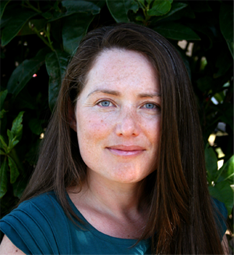
Sensitivity
You may know you are sensitive. But what does that mean?
It means that you were born with a nervous system that’s wired differently from most of the population. The volume is turned up in your system. You see, feel and experience things that others miss. The world is a loud place for sensitive types because we pick up on so much information in our environment.
Sensitive people feel the energy of the room, the emotions of others, and subtle body language. Loud noises startle us. Everything is louder and brighter. And despite picking up a ton of information, we’re not conscious of what we’re experiencing.
For example, I’m so sensitive that I’m empathic. I feel the emotions of other but assume those emotions are mine. I’m still working on that one, but being conscious of it helped tremendously.
Also, my whole life I’ve been told to “stop being so sensitive” (as if I could help it). As a child I had shame around my sensitivity. With awareness that shame has faded.
Why are sensitive people more likely to have IBS?
Sensitive types have a much a more intense reaction to stimulation and stress. Our systems tend to get overwhelmed. I get overwhelmed by crowds of people. Street festivals are my idea of a nightmare, while others love them.
Sensitivity means you’re more attuned to and effected by things outside AND inside your body. A sensitive type may have the same level of gas and bloating as a less sensitive person. The less sensitive body will read this as mild discomfort, while a sensitive body will experience it as intense pain.
So when doctors say “It’s in your head”, what he/she really mean is that” it is in your nervous system”.
Understanding your nervous system can be a huge relief. You are not hysterical or dramatic. You really DO feel more. A lot more. And others, unless they are sensitive, don’t get it.
A sensitive nervous system is very reactive to your fearful or negative thoughts. I have literally made myself sick with worry. Sensitive types can do that. We are so much more effected by our emotions. Again, this is not a defect or a choice. It is the way we are built.
Understanding my nervous system has taught me that I need to take better care of myself than is typical. To stay balanced I have to eat better and take it very easy on myself. And never, ever compare myself to others. It’s like comparing apples and oranges.
My whole life I have noticed that other people can handle a lot more stress, toxins and activity than me, without even noticing they’re out of balance. It may seem better to be less sensitive, but lack of sensitivity comes with it’s own set of problems.
I’ve learned that I need a lot more alone time to rest and restore. And this is not negotiable.
How many people are sensitive?
Elaine Aron has written a great book called the “The Highly Sensitive Person” that is a detailed explanation of this type. According to her, highly sensitive types make up 15 to 20 percent of the population. We are a minority, but there are many of us in this world.
Understanding and embracing your sensitivity means learning how to manage yourself without pushing yourself too hard and expecting too much from yourself. It means being realistic about your limitation and acknowledging the gifts that come with it.
Being extra sensitive comes with a heightened intuition, the ability to read and deeply connect to people and a rich, unique way of seeing the world. It’s like everyone else has clouded vision, while you see everything in sharp, 3-D technicolor.
Sensitivity can be your superpower and kryptonite at the same time. It all depends on how you use it and your ability to sooth yourself. A highly sensitive nervous system is like a new born baby. It may be easily disturbed but is soothed by nurturing and comforting.
How to balance your nervous system
Self care is essential for sensitive types. They likely need more rest and quiet than others. They need to retreat to recharge. Our modern world is hectic and demanding, and if you don’t decompress regularly, you’ll wear your system out and leave it vulnerable to health issues.
Sensitive types are also more likely to react to common allergens like wheat (gluten), dairy (casein) and sugar. A cleaner diet is more important for sensitives.
Other ways to self sooth:
Spend time in nature (sitting in the park, taking an easy hike)
Soak in hot water or drink hot tea with calming herbs (chamomile, tulsi).
Apply oil to your body or food is healing and grounding, as is eating protein, probiotic foods and green veggies.
Get a massage
Do EXTREMELY GENTLE yoga or tai chi/chi gong. Vigorous exercise is not calming.
Hanging out with pets or other animals is very soothing, if you like animals.
Some people are soothed by creative projects like knitting or building model airplanes. Having relaxed, creative fun is very soothing to the nervous system.
Know yourself and your limitations so you don’t push yourself past them. You can’t do it all without sacrificing your health.
My favorite way to sooth my nervous system is to lie down on the floor with an eye pillow over my eyes and a cushion under my knees. Doing that for 15 to 20 minutes a day does wonders and is free and convenient.
Being sensitive doesn’t mean being sick
Having a delicate, sensitive system does not mean you will get IBS. It just means you need to take extra special care of yourself so you don’t run down your body. A run down body is more likely to develop health conditions, including IBS.
Next week I will talk about the second common characteristic among IBS suffers. Typically IBS sufferers have all three qualities that I discuss in this series. Having a certain metabolic types will make sensitive types more likely to develop IBS.
Being sick also doesn’t mean you can’t live life to the fullest, it just means you have to take it easy, slow or do it your own way.
I’m still very sensitive, but I am no longer sick. I was able to transform my health and stay that way. I made a lot of changes to support sensitivity. I moved cities for example. I used to live in New York City, which burned me out completely in a matter of years. I also have a moving meditation practice (Chi Gong) which has taught me how to diffuse overwhelm.
Being healthy means learning how to balance your nervous system with your life. Lowering my expectations of myself has been a huge relief and has helped tremendously with stress.
I also know how to properly rest my nervous system. I know that watching TV/movies is very stimulating to the nervous system, as is hanging out with certain people. I know how to find deep rest, during which emotions are processed, instead of vegging out to distract myself from how I feel.
Respect your limits and your body will treat you well. You will accomplish more in life this way and stay in one piece during the journey.
This self knowledge is so much more important than discovering the new super food or promising supplement.
How do you nurture your nervous system?
 Angela Privin is proof that IBS is NOT an incurable disease or a disease at all. IBS is a body out of balance. It’s an invitation for change. After solving her own IBS mystery more than a decade ago Angela trained as a health coach to help others.
Angela Privin is proof that IBS is NOT an incurable disease or a disease at all. IBS is a body out of balance. It’s an invitation for change. After solving her own IBS mystery more than a decade ago Angela trained as a health coach to help others.
Angela uses both science and intuition to help people figure out what’s out of balance in their body. She works with lab tests, dietary changes, supplementation and nervous system rebalancing. Get help rebalancing your digestive system and solving your IBS mystery here.







Pingback: IBS metabolic type
Pingback: Perfectionism and the gut
Pingback: The best remedy for stress